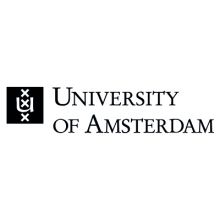Dutch universities at breaking point from relentlessly growing enrolments may want to brace for a spike next year as grants return for all domestic students.
In late September, the government announced it would set aside €500 million (£429 million) to boost the reintroduced student basic grant, which will replace loans offered since 2015. The universal monthly payment is set to rise by €165 to about €440 to compensate for inflated living costs. This week, a majority in parliament said the uplift should continue for two more years.
The bigger grants could lead to a surge in domestic enrolments after a slight slowdown this year, when the share of school-leavers entering university fell to 67 per cent, compared with 72 per cent in 2021. “I think there might be students who have delayed their entrance to higher education because of that,” Barend van der Meulen, head the Center for Higher Education Policy Studies at the University of Twente, told Times Higher Education, referring to the return of the basic grant.
Terri van der Velden, president of Interstedelijk Studenten Overleg (Intercity Student Consultation), the Netherland’s largest national student body, said school students already drawn to post-pandemic gap years would be wary of the tail end of the loan system. “They have heard about their brothers and sisters struggling with all the loans they had to take out and now they know that they can get a basic grant if they wait one more year,” she said.
The return of grants has been linked to what Pieter Duisenberg, head of the Universities of the Netherlands (UNL) lobbying body, described as a “stabilisation” in enrolments this year.
Early UNL data suggest a roughly 4,000-strong rise at bachelor’s level will be cancelled out by an equal drop at master’s, which Mr Duisenberg said would give universities breathing space to “get the basics in order when it comes to work pressure and more time for research”.
But a grant-fuelled return to growth next year would create headaches for those institutions and cities already straining to house and teach swelling cohorts. The University of Amsterdam has repeatedly told international students without accommodation not to enrol and considered legally risky course caps to stem the influx.
New legal instruments to control non-European Union international student numbers are due to be announced early next year, too late to be in force for September. They are being refined after education minister Robbert Dijkgraaf withdrew a draft bill that would have allowed caps on English-language courses only, telling parliament that he wanted the tools to form part of a bigger package of higher education reforms.
While the lure of grants could rock an overcrowded boat, other experts have said financial factors only form a small part of students’ decisions of when, and if, to enrol. Aniko Horvath and Ida Sabelis, who study higher education at Vrije Universiteit Amsterdam, said evidence from the introduction of loans in 2015 suggested financial terms were unlikely to be the main driver in enrolment decisions.
“Everybody expected a decline and it didn’t happen,” said Professor Sabelis, referring to loans. “Then Covid came and everybody expected a decline and the contrary happened.” Dr Horvath said her work on drop-out in Norway showed that a tightening labour market could be influential on the decision to study, and Professor Sabelis noted the Netherlands was experiencing workforce shortages for the first time in 60 years.
After students protested inter-cohort injustice, the government set aside €1 billion to partially write-off student debt accrued between 2015 and 2023. Those who studied for four years are entitled to €1,436, for example, while those who started a programme this year will get €359 written off. Previous governments had promised Dutch students they would not pay interest on loans, then reversed course; but rates for the last loans are set at 0.46 per cent.
All this may reel through an applicant’s head, but Professor van der Meulen said finance policy was rarely decisive. “You see sometimes little changes in behaviour, but by and large students find it too important to do a higher education programme and will not let themselves be affected.”
Register to continue
Why register?
- Registration is free and only takes a moment
- Once registered, you can read 3 articles a month
- Sign up for our newsletter
Subscribe
Or subscribe for unlimited access to:
- Unlimited access to news, views, insights & reviews
- Digital editions
- Digital access to THE’s university and college rankings analysis
Already registered or a current subscriber? Login










